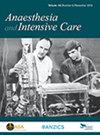在以工作场所为基础的评估中使用委托量表对实习麻醉师进行自我评估。
IF 1.1
4区 医学
Q3 ANESTHESIOLOGY
引用次数: 0
摘要
自我评估在基于工作场所的评估中的作用仍然存在争议。然而,麻醉学员需要学会判断自己的工作质量。委托量表通过将评估评级与日常临床督导决策相结合,促进了督导人员对绩效标准的共同理解。我们假设,如果委托量表也能帮助受训者进行自我评估,那么督导和受训者之间的评分就会非常一致。我们收集了来自澳大利亚和新西兰三家医院的 113 对麻醉学员和督导的迷你临床评估练习表。我们使用皮尔逊系数和类内相关系数计算了学员和导师评分之间的一致性。我们还测试了与人口统计学变量的关联,并检查了影响评分因素的叙述性评论。我们发现有 32% 的评分是一致的,66% 的受训人员评分与督导人员的评分相差不超过 1 分(9 分制)。受训人员和督导人员评分之间的相关性为 0.71,用等级内相关系数衡量的一致程度为 0.67。督导评分越高,受训人员评分与督导评分的相关性越好。我们没有发现与人口统计学变量有很大的关联。造成评分差异的可能原因包括一方没有意识到绩效的某个重要方面,以及对量表的前瞻性有不同的解释。受训人员和督导人员的评分大体一致,这证明委托量表有助于形成对预期绩效标准的共识。受训人员和督导人员就各自的判断所依据的理由进行讨论,将为加强这种共识提供更多机会。本文章由计算机程序翻译,如有差异,请以英文原文为准。
Trainee anaesthetist self-assessment using an entrustment scale in workplace-based assessment.
The role of self-assessment in workplace-based assessment remains contested. However, anaesthesia trainees need to learn to judge the quality of their own work. Entrustment scales have facilitated a shared understanding of performance standards among supervisors by aligning assessment ratings with everyday clinical supervisory decisions. We hypothesised that if the entrustment scale similarly helped trainees in their self-assessment, there would be substantial agreement between supervisor and trainee ratings. We collected separate mini-clinical evaluation exercises forms from 113 anaesthesia trainee-supervisor pairs from three hospitals in Australia and New Zealand. We calculated the agreement between trainee and supervisor ratings using Pearson and intraclass correlation coefficients. We also tested for associations with demographic variables and examined narrative comments for factors influencing rating. We found ratings agreed in 32% of cases, with 66% of trainee ratings within one point of the supervisor rating on a nine-point scale. The correlation between trainee and supervisor ratings was 0.71, and the degree of agreement measured by the intraclass correlation coefficient was 0.67. With higher supervisor ratings, trainee ratings better correlated with supervisor ratings. We found no strong association with demographic variables. Possible explanations of divergent ratings included one party being unaware of a vital aspect of the performance and different interpretations of the prospective nature of the scale. The substantial concordance between trainee and supervisor ratings supports the contention that the entrustment scale helped produce a shared understanding of the desired performance standard. Discussion between trainees and supervisors on the reasoning underlying their respective judgements would provide further opportunities to enhance this shared understanding.
求助全文
通过发布文献求助,成功后即可免费获取论文全文。
去求助
来源期刊
CiteScore
2.70
自引率
13.30%
发文量
150
审稿时长
3 months
期刊介绍:
Anaesthesia and Intensive Care is an international journal publishing timely, peer reviewed articles that have educational value and scientific merit for clinicians and researchers associated with anaesthesia, intensive care medicine, and pain medicine.

 求助内容:
求助内容: 应助结果提醒方式:
应助结果提醒方式:


